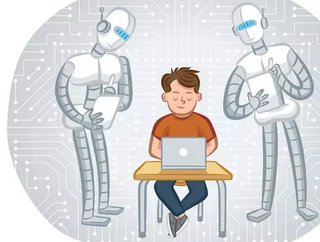Beyond RPA: Intelligent Process Automation

Robotic process automation (RPA) in its modern form seems as if it has only just arrived. The gist of the technology is that, unlike previous forms of automation which ran in the back-end of a system, RPA allows for robots to interact directly with human-targeted graphical user interfaces (GUIs). By watching and recording a human teacher’s inputs, RPA technology can then repeat those inputs, albeit more quickly, reliably and inputting alternative forms of data if necessary.
Already, however, a number of companies are pushing versions of this technology upgraded through the use of machine learning and AI. These solutions go by a number of names such as Intelligent Automation or Intelligent Process Automation. Here, Gigabit Magazine takes a look at three such offerings to see exactly what benefits are on offer.
SEE ALSO:
Cognizant advertises the platform-agnostic nature of its automation offerings, which can ‘harmonise’ with legacy systems. The company identifies automation potential in tasks across the business operation, which it says its machine learning augmented robotic process automation can provide. Cognizant offers so-called ‘Robotics-as-a-Service’ systems which can free human workers up to pursue less menial tasks in sectors such as insurance, banking, healthcare, manufacturing and more.
IBM sees the implementation of intelligent automation as heralding a future ‘collaborative workforce’ comprised of humans and machines working together. It advocates for a programme of change management to upskill workers with the ability to collaborate with robots. The company’s suite of intelligent automation services includes its Watson system, and its technologies have already been put to use in banking, shipping and in policing.
‘Intelligent Robotic Process Automation’ from SAP come as part of its SAP Leonardo intelligent enterprise system. It emphasises its capability to mimic human workers inputs as well as interpret their communications. SAP’s offering incorporates machine learning and conversational AI alongside RPA. Its bots also have the capability to build intelligence into existing back office processes.






